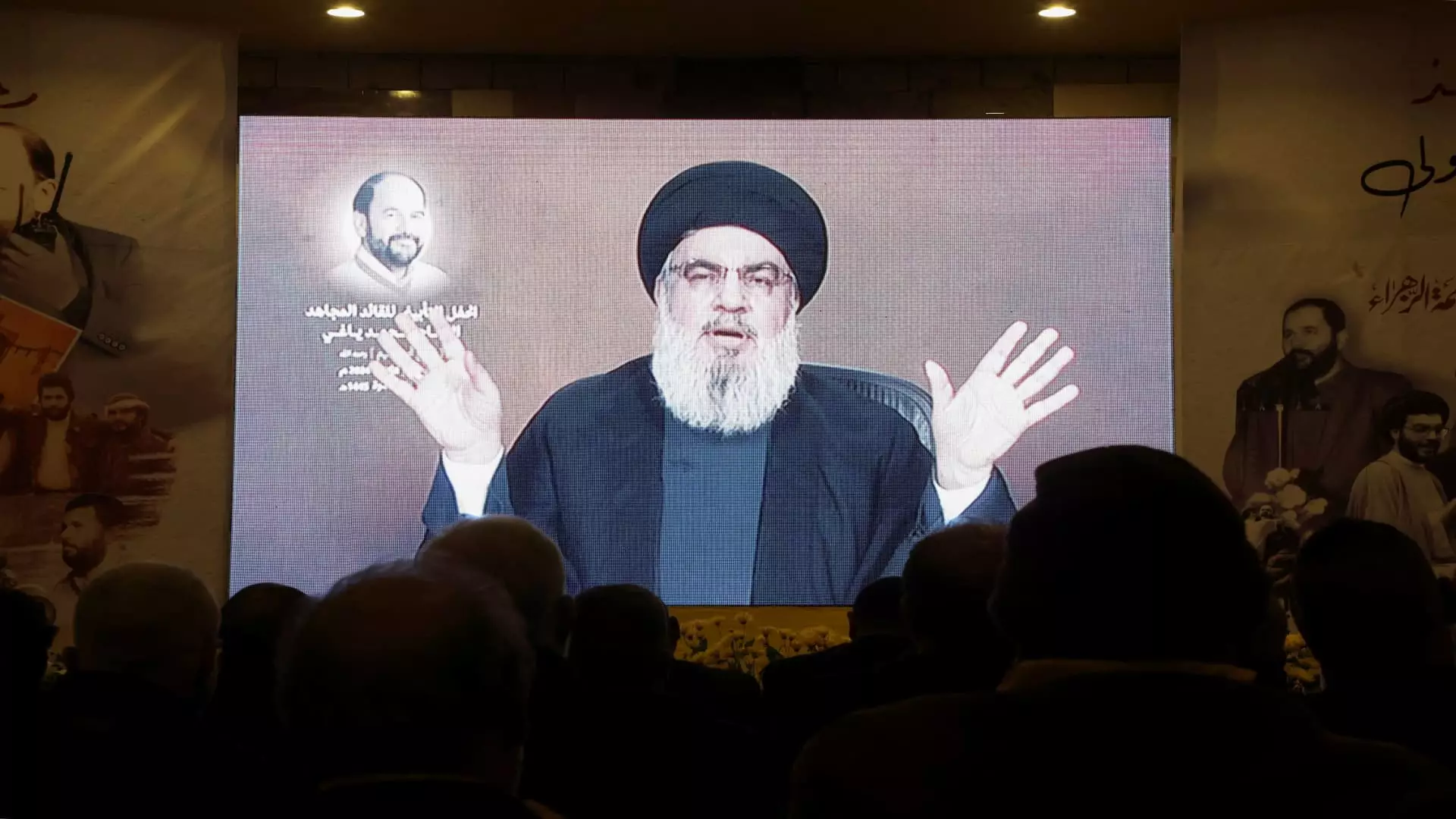Lebanon’s Hezbollah group, with backing from Iran, made headlines on Saturday after it fired rockets at Israel. In response, Israel claimed to have struck a “terrorist cell.” This escalation of violence comes as U.S. Secretary of State Antony Blinken and the European Union’s senior diplomat, Josep Borrell, visited the region in an effort to find a solution to the ongoing conflict. The rocket attacks took place shortly after sirens sounded across northern Israel, and the Israeli military confirmed that around 40 launches from Lebanon were identified. While there were no immediate reports of casualties or damage, the situation remains tense.
Hezbollah stated that it targeted a significant Israeli observation post with 62 rockets, in what they referred to as a “preliminary response” to the killing of Hamas’ deputy chief, Saleh al-Arouri. Tensions have been escalating since al-Arouri was killed in a drone attack, which many attribute to Israel. Hezbollah’s leader, Hassan Nasrallah, warned on Friday that Lebanon would face further Israeli operations if his group did not respond to the killing. Israel made a swift and retaliatory response to the rocket attacks, employing an unmanned aerial vehicle (UAV) strike on the responsible terrorist cell.
Israeli fighter jets and troops also conducted strikes on a series of Hezbollah targets in the southern areas of Lebanon, including Ayta ash Shab, Yaroun, and Ramyeh. Their targets included a launch post, military sites, and what they referred to as “terrorist infrastructure.” The situation remains volatile, as regional leaders and diplomats make efforts to ease the mounting tensions.
Antony Blinken and Josep Borrell initiated a new diplomatic push to address the spillover effects of the war that has ravaged Gaza for the past three months. Besides Lebanon, their efforts aim to prevent spillover into the Israeli-occupied West Bank and Red Sea shipping lanes. The complexity of the conflict becomes evident when considering the continuous exchange of fire between Israel and Hezbollah, the simmering tensions in the West Bank, and the determination of the Iran-aligned Houthis in Yemen to target Red Sea shipping lanes until Israel ceases its bombardment of Gaza.
The Israeli onslaught on Gaza began after Hamas militants attacked Israel on October 7. Israeli officials claim that over 1,200 people have been killed, and 240 have been taken hostage in these attacks. In response, the offensive from Israel, aimed at eradicating the Islamist movement ruling Gaza, has reportedly resulted in the death of 22,722 people, according to Palestinian health officials. The densely populated enclave, home to 2.3 million people, has been devastated. In the past 24 hours alone, 122 Palestinians have been killed, and 256 others have been injured in Gaza.
The conflict shows no signs of abating despite the visit of senior diplomats. The official Palestinian WAFA news agency reported that 18 Palestinians were killed in an Israeli attack on a house east of Khan Younis in Gaza. Meanwhile, in the West Bank village of Beit Rima, a 17-year-old Palestinian was shot dead by Israeli forces, and four others were injured. The residents of Gaza, traumatized by the ongoing bombardment, face a dire humanitarian crisis with diminishing food, medicine, and fuel supplies.
In the southern Gaza Strip city of Khan Younis, 11-year-old Mahmoud Awad spoke of losing his parents and siblings to Israeli airstrikes. He revealed how they had fled to Khan Younis from Shati refugee camp after receiving warning fliers from the Israeli army that Gaza was becoming a battlefield. Despite their attempts to find safety, their shelter in Khan Younis was bombed as well. This heartbreaking testimony of a child’s experience is a stark reminder of the devastating impact of the conflict on innocent civilians.
As casualties mount on both sides of the conflict, Israel denies deliberately targeting civilians. Instead, Israel claims that Hamas militants intentionally embed themselves and their infrastructure among civilian populations, making it difficult for Israeli forces to strike without causing collateral damage. In support of their claim, Israel has released videos and photos. However, Hamas strongly denies these accusations.
Israel, under increasing global pressure to minimize civilian casualties, announced that it will adopt a more targeted approach in Gaza. The country has already faced criticism for the significant number of civilian deaths. To illustrate the gravity of the situation, Israel lists 175 soldiers killed since the onset of its offensive. It is important to note that Hamas, which is committed to the destruction of Israel, receives support from Iran. Other Iranian-backed militants have previously targeted U.S. forces in Iraq and Syria, as well as Israel from Lebanon. These military actions are often portrayed as acts of revenge for Israel’s offensive against Gaza.
Antony Blinken met with Turkish Foreign Minister Hakan Fidan during his visit to the region. Blinken also planned to meet President Tayyip Erdogan, a vocal critic of Israeli military actions in Gaza. Turkey, unique among its NATO allies, does not classify Hamas as a terrorist group and has offered its mediation services in the conflict. Throughout his week-long regional tour, Blinken is scheduled to visit Israel, the occupied West Bank, Jordan, Qatar, the United Arab Emirates, Saudi Arabia, and Egypt.
As the tensions continue to escalate between Israel and Hezbollah, regional leaders and diplomats are under increasing pressure to find a solution. The ongoing rocket attacks and retaliations result in substantial costs in terms of human lives and the devastation of entire communities. Ultimately, a diplomatic resolution is crucial to ensure the safety and well-being of the people living in this conflict-ridden region.


Leave a Reply